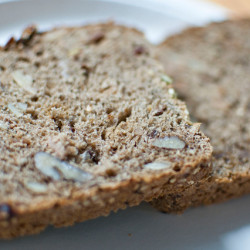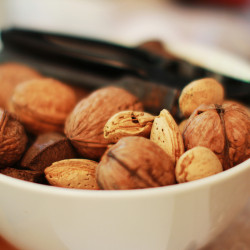High workload, meetings, challenging projects, lack of concentration … You no longer know where to turn and you neglect your meal breaks to save time? Are your poor eating habits complicating your life at work instead of making it easier?
It has been proven many times that our food choices have a direct impact on our productivity. The World Health Organization says that a healthy diet could even improve the productivity rate of a country by 20%! So what are the foods you should eat to improve your performance at work? Discover the foods that boost the brain with Esprit de Corps.
1. Carbohydrates, essential fuel
To function, the brain primarily requires oxygen, water and glucose, which comes from the body by processing carbohydrates that are ingested during a meal. However, not all carbohydrates are the same, as your body does not process them in the same way. Low glycemic carbohydrates (lentils, sweet potatoes, whole wheat bread, etc.) will provide energy to your body gradually and over time. Conversely, carbohydrates with high glycemic index (fried potatoes or mashed, white bread, pumpkin, etc.) cause a “crash and burn” effect.
They give you a big boost of energy in a short period of time, followed by a flagrant lack of energy and concentration. For example: The ideal rate of glucose per day is 25 grams, which is roughly equivalent to a pastry or two cups of fresh grapes, or two medium apples. The choice is agonizing! The difference between these foods is that the pastry delivers its glucose rapidly, causing the famous crash and burn effect, whereas apples and fresh grapes allow your body and your brain to perform over time. Knowing this, you will think twice before you jump on a donut! Consult this table of glycemic index of foods (in French only) published by Radio Canada for details.
Carbohydrates are becoming increasingly present in our diet. In order to consume them wisely, follow these four tips from Esprit de Corps:
- Choose carbohydrates with low glycemic index. If you eat foods with a high glycemic index, choose a low-glycemic food to offset. (E.g. of snack: a fruit with nuts)
- Eat reasonable portions of carbohydrates several times a day rather than one heavy portion
- Beware of processed products, they often contain hidden sugars!
- Vary the sources of carbohydrates
2. Proteins, as good for athletes as they are for the inactive
Protein provides your brain with the amino acids responsible for the quality of neurotransmitters. They therefore prevent difficulties in concentration and memory. They are also essential for athletes since they help to build muscle tissue. Whether you are inactive or very active, you need protein, but not necessarily the same ones. We recommend that inactive people not exceed a threshold of 2 times per week for animal protein, and to look to vegetable proteins such as algae (spirulina for example), peanut butter, quinoa, squash seeds, etc.
For an adult, the ideal protein intake is on average 0.8 g per kilogram of body weight. To do this, follow our Esprit de Corps tips:
- Choose white meat over red meat
- Vary your protein sources
- Think of plant protein supplements in addition to or to replace animal protein, depending on your level of physical activity.
3. Fish to refuel Omega-3
Contrary to popular belief, fat is good for you! Did you know that the dry matter of the brain (i.e. once the water in it was removed) consists of 60% fat? To feed the brain, it is essential to provide unsaturated fats such as omega-3 and omega-6. These essential fatty acids help to slow down brain degeneration, but cannot be manufactured by our bodies. We must therefore incorporate them in our diet by eating fish. However, you must pay attention to the type of fish you consume and to its origin, as some fishes contain heavy metals. Avoid missteps with this winning trio: sardines, mackerel and herring!
If you do not like fish or if you are a vegetarian, turn to these oils: olive, canola, flax, camelina, nuts and avocado.
Zoom in on the fat
Yes, fat is good for you, but not all types of fat! Keep in mind that good fats are unsaturated fats. On the other hand, the so-called trans and saturated fats should be eliminated. So make sure to not overdo it with deep fried foods, fatty red meats, whole milk, processed foods, etc. It is very difficult to eliminate the bad fats from our diet, but it is possible to significantly reduce the amount with a little determination
4. Nuts, for their many virtues
Besides being delicious, nuts are a source of protein, fiber, antioxidants and omega-3. That’s pretty impressive! They therefore prevent diabetes, cancer, and can even help you lose weight thanks to their ability to satisfy your hunger. Quick and easy to eat, they are the ideal snack to help boost your performance at work. Consume one serving per day, about a handful, for your body to take advantage of the benefits of nuts!
5. The Avocado, a super food!
Granted, avocados are high in calories. However, it would be a shame to deprive yourself from enjoying them, as avocados are good for your health. By slowing down your digestion and preventing your blood sugar from rising sharply after a meal, they give you long term energy! They also contribute to a healthy heart by reducing bad cholesterol. Why deprive ourselves of its creamy texture and pleasant taste?
6. Berries for their antioxidant power
When our body converts nutrients that we have ingested into energy, it also produces toxic waste, including free radicals, which can affect nerve cells, including those of the brain. However, edible berries (blackcurrants, strawberries, raspberries, blueberries, currants, blackberries, etc.) help to eliminate waste and prevent our cells from oxidation, hence the name antioxidants! The same way that they protect metals from corrosion, antioxidants prevent our cells from “rust” and reduce the risk of degenerative brain diseases such as Alzheimer’s disease. The berries also improve circulation and strengthen the small blood capillaries, allowing for better oxygenation of the brain.
7. Vegetables and offal (organ meats), for their iron richness
According to the World Health Organization (WHO), 30% of individuals who have an iron deficiency suffer from impaired work performance. So what are the foods rich in iron?
Organ meats such as liver or kidneys are sources of iron first choice! 100 grams of liver contains between 7-12 grams of iron, the daily necessary intake for a men (women need about 16 grams per day). Do you not like offal? There are iron-rich vegetables such as spinach and broccoli, as well as legumes such as beans, lentils and chickpeas. However, keep in mind that for a 100g serving, spinach contains 2.7 mg of iron, 8 mg for lentils, and chicken liver contains over 10 mg.
To summarize, here are the rules for a diet conducive to job performance:
- Give your brain the energy it needs by regularly consuming various carbohydrates and a low glycemic index
- Fill up with essential fatty acids to maintain your brain function.
- Practice regular physical activity. Sports contribute to the oxygenation of organs and tissues and thus contributes to the healthy functioning of the brain.
- Help your body eliminate the waste it produces by consuming antioxidants.
- Check your iron levels regularly and adjust your diet accordingly. Green vegetables, legumes and organ meats are friends for anemia!
- Drink water throughout the day, starting with a full glass of water when you get up.
The brain consumes 20% of the energy produced by the body. To be effective at work and to increase your concentration, take advantage of foods that give you energy over time and help boost the brain. As an employer, remember to graciously offer healthy food to your employees and also encourage exercise. This will contribute to the overall performance of the company!




